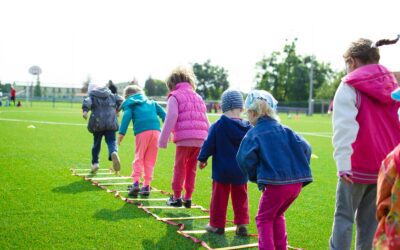Renew the Mind Counselling
Educational Issues

Bullying
According to Dictionary.com a bully is defined as “a person who harasses, abuses, intimidates, or coerces people, especially those with less power than they have or those considered weaker or vulnerable in some way. “ The word often implies that such behaviour is repeated or habitual.
Bullying can take place in different formats. It can be directly happening face to face or happening behind a person’s back. It can be very obvious or hard to prove. Different types of bullying that can happen to your child at school could include:-
- Verbal bullying such as teasing, name calling where words are used to upset or embarrass someone.
- Physical bullying such as hitting, tripping or kicking. It can also include damaging a person’s possessions.
- Cyberbullying in the form of sending mean posts, images, emails or texts.
- Social bullying where things can be done to hurt a person’s reputation eg spreading rumours, leaving a person out of a group, playing mean jokes or pretending not to hear a person when they speak.
If your child reports to you that he/she is being bullied, it is important to take the matter seriously. There are certain strategies that can be taught to help a child manage the bullying and for teenagers in particular, it can be beneficial to see a counsellor to learn about the best course of action and develop the skills to deal with the situation they are in.

Want to talk to a qualified counsellor?

School Refusal
If your child is regularly not wanting to go to school, then it is time to try to find the reason. There could be some changes in the household eg. the arrival of a new baby, an extra person moving in the home, parents who may be separating, or the loss of a pet. It could also have something to do with what is happening at school eg. bullying, struggling with the school work, not liking the teacher, younger children not wanting to separate from parents, or feeling anxious around meeting expectations of attaining good results.
It is often difficult for family or friends to persuade the child to attend school and even if they do attend, they will often end up returning home after feeling sick at school.
The difficulty can be in finding the reason for the school refusal. You can support your child by remaining calm and trying to have a conversation about their worries as the sooner the problem can be addressed, the easier it will be to prevent a long-term habit.
You can support your child by considering if it would be beneficial for him/her to speak to a professional to help them with strategies to enable him/her to have a better understanding of the reasons for their refusal to attend school.
Friendships
Friendships are very important for children at school, as good friends can provide a sense of security in an environment outside of the home. The forming of good friendships is also good for a person’s health and overall happiness, and it helps with developing self-confidence and gaining a positive feeling of self-worth.
Sometimes, children may not want to go to school because they feel as if they have no friends. If this is the case, parents can help by listening to their child and teaching them how to introduce themselves and saying their name. It is also helpful to engage the help of the classroom teacher if the child is in primary school.
Relationships in high school can go beyond friendship groups where students can join co- curricular groups and activities where they are mixing with people with the same interests, have a different sense of what fun is, and have a different way of seeing the world.
According to Christina Morgan (Psychologist, Lourdes Hill), “No one is obligated to be your child’s friend or continue to be ….. and vice versa. Every child should feel they are ‘allowed’ to have as many friends and connections as they like, and they can move between social groups.
If your child needs help to improve their self-esteem, confidence or communication skills, a counsellor can develop a program for your child to teach them the skills they need to help them with making friendships and recognising the attributes of a good friend.

Want to talk to a qualified counsellor?
Building Relationships with the School
In order to allow your child to have an educational experience that is something to look forward to each day, and for parents to be informed as to what is happening for their child, it is important to build a strong relationship with the school. In the primary school where students have the same teacher for the year, getting to know the teacher and communicating concerns in a constructive and respectful manner allows your child to feel confident in confiding in you about any problems they may be experiencing.
Partnerships can be built in the primary school in general by helping in the tuckshop, helping in the classrooms, going on excursions or helping with sporting events. When children move on to secondary school, partnerships change as they become more independent, however parents can be involved in parent information nights, fund raising activities or sporting events.
No matter what level of schooling your child is in, there are always school performances, fetes, cultural and musical performances and class presentations to attend to show your support of the school community as a whole.
When everybody works together in the best interests of your child, your child is more likely to have a positive attitude towards school, with other benefits as a result such as wanting to attend school regularly, achieve good results, have good relationships with peers and may be more likely to progress to post-secondary education.


Underachieving at School
If your child is underachieving according to your expectations, then it is time to investigate further to try to find the cause. It is important to be familiar with the classroom environment, and consider your child’s learning style, strengths and weaknesses. Positive communication with the classroom teacher is paramount so that you as the parent and the teacher can work together to support your child. Sometimes it might be necessary to seek a diagnosis from a professional to allow for the best outcomes.
Renew the Mind
Latest in our Blog
Early Adolescence – 10 to 12years old
Physical: Have increased coordination and strength. Are developing body proportions similar to those of an adult. May begin puberty—evident sexual development, voice changes, and increased body odour are common. Emotional/Social: Increased ability to interact with...
Child Development 6-9 years
Over these middle years, you’ll see the gradual development of your child’s social skills, and an increasing ability to relate to others. Your child might have a great desire to fit in and be accepted by her peer group – some degree of peer group acceptance is...
Understanding Pre-schooler Behaviour
Preschoolers need boundaries that guide their natural enthusiasm but that don’t dampen their passion for life. Boundaries and routines offer security. They protect pre-schoolers from getting overwhelmed by too much responsibility before they’re ready....



